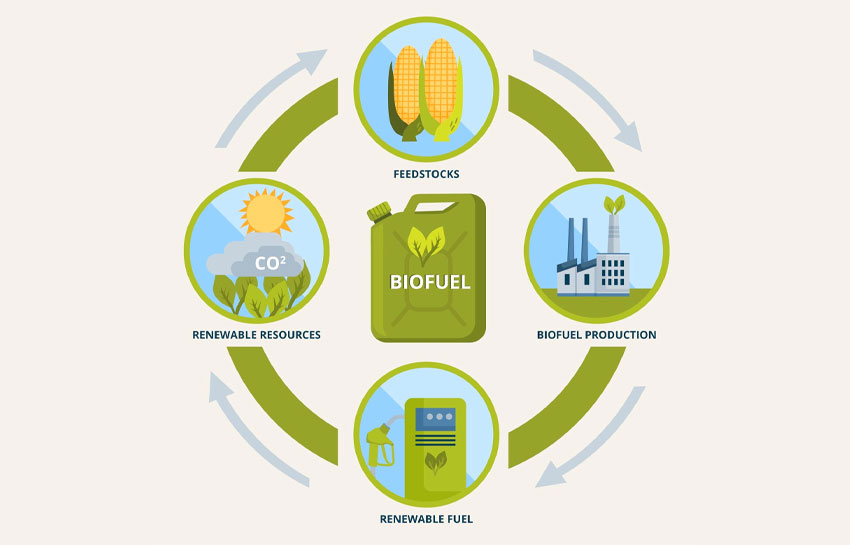
What You Need to Know About the EPA’S RFS and RIN Programs
Fossil fuel combustion and industrial processes contribute about 73% of U.S. greenhouse gas emissions. Amid such startling figures, U.S. Congress created the Renewable Fuel Standard (RFS) program to scale the nation's renewable fuels sector, reduce reliance on imported oil, and cut down on emissions. To comply with the RFS and meet the EPA specified Renewable Volume Obligations (RVO), refineries and importers of petrol-based fuel must blend renewable fuels into transport fuels as per specified emissions requirements. The EPA permits biofuel producers to create renewable identification numbers (RINs) specifying the volume and type of biofuel produced, which are then blended into transportation fuels. This makes RINs the primary tool for RFS enforcement, helping regulated oil companies meet their renewable blending requirements. This blog discusses the RFS program and the importance of RINs.
What Is the RFS Program?
Established under the Energy Policy Act of 2005, the RFS program expanded under the Energy Independence and Security Act of 2007, giving it a wider mandate. It specified annual mandatory volumes of renewable liquid fuel use each year through 2022 and required the EPA to set levels after that period. Consequently, in June 2023, the EPA issued the Final Rule, establishing the RVO for 2023 to 2025, which the liquid fuel industry is required to incorporate into its supply to replace fossil fuel for all categories. The Final Rule monitors the progress of the RFS program while establishing biofuel volume requirements and related percentage standards for renewable energy categories, like cellulosic biofuel, biomass-based diesel (BBD), and advanced biofuel for the 2023 to 2025 period.
How RINs Benefit the RFS Program
A RIN is a ticket or identification number tied to each gallon of biofuel produced. For example, one gallon of ethanol equals one RIN, while one gallon of biodiesel equals one-half RIN. Each RIN is attached to a gallon of biofuel they were produced with. The EPA mandates licensed refineries to blend a specified number of gallons based on the percentage of the total U.S. refinery capacity encompassing their production. This requirement is commonly referred to as the Renewable Volume Obligation (or RVO) for each year. Once the gallons of biofuel blend into the U.S. fuel supply, the RINs attached to those gallons are presented to the EPA as proof that a refinery has met set blending requirements. Following are some of the benefits of RINs to the RFS program:
- Allows the tracking of renewable fuel production: As mentioned earlier, RINs are unique serial numbers assigned to each gallon of renewable fuel produced or imported. They serve as a tracking mechanism to monitor compliance with the RFS program's renewable fuel volume obligations. Since each RIN represents the production of one gallon of renewable fuel, producers and refiners can easily prove to the EPA that they meet the blending requirements.
- Helps verify compliance: Obligated parties must meet specific renewable fuel blending targets, such as refiners and importers of petroleum-based fuels. They can demonstrate compliance by blending renewable fuels or purchasing RINs from renewable fuel producers that use feedstock, such as used cooking oil (UCO). This way, RINs provide evidence that they have introduced the required amount of renewable fuel.
- Enables trading among obligated parties: When fuel refiners blend more renewable fuel than required, they can sell the excess RINs on the market to other refiners that may not meet their blending requirements. Similarly, producers that make only renewable fuel sell all their RINs on the market to other obligated refiners.
- Offers flexibility: RINs allow obligated parties to meet their annual renewable fuel volume obligations. They can choose to blend renewable fuels directly or purchase RINs generated by other biofuel producers. RINs function as a market-based compliance tool that allows refiners to operate in a flexible environment while incentivizing biofuel producers to create more renewable energy and generate more income by selling their RINS.
New Record-Keeping Requirements and How Aegex's FACTS Tool Can Help
To prevent fraud in the market, the EPA released new RFS record-keeping requirements in late 2021. The requirement mandates producers to document the location of origin of all the renewable fuel feedstock, including UCO, and provide accountability for renewable energy throughout its lifestyle. This allows for auditing processes while providing proof that the fuel was renewable with the claimed carbon intensity. Through its auditable system called Feedstock and Compliance Tracking System (FACTS), Aegex Technologies helps industry players, including UCO collectors, processors, and aggregators, track and audit feedstock as per the EPA-defined reporting requirements. FACTS assigns Carbon Intensity (CI) scores to batches defined by the Low Carbon Fuel Standard (LCFS) per the California Air Resource Board (CARB), thus helping players optimize their compliance and records management efforts. The following are the key benefits of FACTS:
- Allows players to comply with the EPA's record-keeping compliance of feedstock.
- Provides third-party auditable records and reporting.
- Offers real-time and secure analytics and operational trend line of gco2e.
